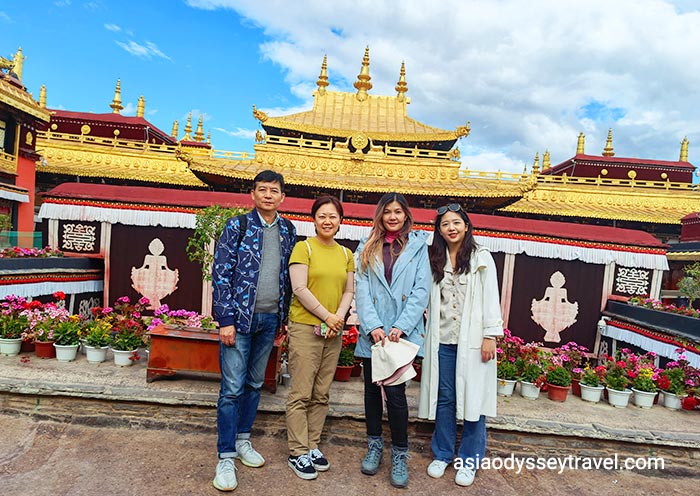20 Free Ideas For Choosing China Tour Websites
Wiki Article
Top 10 Tips To Shop In China's Street Markets In China
1. Arrive earlyTip. Market vendors will give lower prices to first customers when they arrive in the market earlier.
Pro: Shopping early will allow you to bargain better and offers a wider range of options.
Cons: You must start your day early. It may not work for all travel schedules.
2. Bring Cash
However, mobile payment options like WeChat Pay Alipay and Alipay, are increasing in popularity.
Cash payments can help smooth transactions and can give you leverage in negotiations.
Con: Carrying large amounts of cash in crowds can increase the chance of theft or loss.
3. Learn Basic Mandarin
The best way to learn is by learning phrases like "Zhegeduoshaoqian?" ("How much is this?") It's easier to communicate by knowing phrases like "Zhege duoshao Qian?" (How much is this?) or "Pianyi youdian ba?" ("Can you make it cheaper?") It can help you communicate effectively.
Pro Respects local culture and builds relationships with vendors.
Cons: A limited vocabulary may allow for miscommunications.
4. Inspect goods with care
Check the items carefully to ensure that there are no flaws or inconsistent items. This is particularly important when it comes to electronics, clothing crafts, and other products.
Pro: You'll get exactly what you pay for.
Con: This can take a long time and can irritate vendors.
5. Buy Confidently
Tip: Don't hesitate to bargain, since it's expected in most street markets. Start by reducing the cost 50-70 percent.
Pro: Bargaining can lower costs.
Cons: It can be intimidating to those who are not familiar with the procedure.
6. Beware of fakes
You should be cautious when you purchase brand name products such as bags, watches and other electronic items.
Pro: Save money by avoiding low-quality copies.
Con Pros: Genuine products are difficult to find and cost more.
7. Local Customs to Be Respected
Tips: Study how locals shop, bargain and interact with sellers to adjust your approach.
Pro: It helps you avoid cultural blunders and helps you blend into the culture.
Cons: It might take some time to learn the various customs.
8. Keep Valuables Secure
Tips - Use anti-theft bags or secure your wallets and phones inside a pocket in order to avoid being picked up in markets.
Reduces risk of theft in busy areas.
Cons: Extra precautions can be uncomfortable or restrictive.
9. Taste Before Buying (For Food)
Make use of the fact that many food vendors will allow you to try snacks or dried products before buying them.
Pro: The food is sure to be fresh and delicious.
Con: After providing you with the opportunity to try their product, some sellers may push you to make an order.
10. Know the Market's Focus
You can find certain items at each market, like antiques and souvenirs in Beijing's Panjiayuan or Shanghai's Yuyuan Market. Prior to your visit, research what you want to buy.
The time you can save as well as the focus on what you are able to focus your attention is a great advantage.
Cons: Your spontaneity is restricted when your research is rigorous.
The Pros of Shopping Street Markets
Unique Finds You can discover unique items, such local food items or handmade crafts which isn't sold in the formal stores.
Street markets typically have cheaper prices than malls, stores or shopping centers.
Cultural Experience: getting to get to know the vendors and going to markets are great ways to learn about local cultural traditions.
One market has everything from clothes to food and even souvenirs.
Pros and Cons of Shopping Street Markets
copyright Items: A high probability of encountering copyright or low-quality products.
Crowds: Markets are very busy, particularly on weekends and holidays.
Vendor pressure: Some vendors use aggressive selling tactics that can saturate the user experience.
There are no returns: Most purchases are final and have no recourse for exchanges or refunds.
You can avoid common pitfalls by following these tips and being prepared. Read the top rated check out this iconic site for site tips including eating in changchun, eating in zhengzhou, eating in fuzhou, ganden temple, chinese vegetarian food a vegetarians guide in china, eating in shangri la, entertainment in hong kong, xiang cuisine.html, kashgar tour maps, shopping in shangri la and more.

Top 10 Tips For Ritual Practices When Visiting Famous Chinese Temples
1. Respect the rules and customs of your temple. It is important to be aware of these guidelines, especially when entering sacred spaces.
Pro: This shows the respect to local customs as well as the sacred temple space.
Cons: It is difficult to master the rules completely, especially when you're in a temple with complicated rituals.
2. Be respectful and quiet
Tips: Maintain a calm manner by remaining quiet during the rituals or inside the temple. Do not talk or laugh loudly.
Pro: Provides peace for worshippers and demonstrates reverence.
Con: Silence may make you feel uncomfortable if you don't know the local customs or the local environment.
3. Dress sensually
Tips: Dress in respectful manner such as long pants, dresses, or skirts and avoid revealing clothing. Some temples provide scarfs, shawls, or other things to cover your arms.
Pro: Respect for the sacred site and its worshippers.
Con: It could be necessary to take additional clothes or prepare your trip when it's a hot day.
4. Be attentive to the Ritual of Offerings
Tip: Wait until others are done with their rituals and then follow the lead of the locals if you'd want to take part in an offering (such as incenses or fruits).
Pro: It will show you respect for the practices of religion and will help you be a part of the community.
Con Cons: If the ceremony is unfamiliar to you, it can be difficult to take part.
5. Do not interrupt prayer or meditation
Be careful not to interrupt worshippers when they are meditating or praying. Don't take pictures or begin an argument when a person is in a spiritual practice.
Pro: Shows respect for diversity of culture and promotes an environment that is serene and reverent.
Cons: Capturing moments to keep them in your mind can feel like a snoop.
6. Lighting of Incense
Tip: Chinese temples have a ceremony of lighting incense. If allowed, light incense as a form of worship to the gods. Hold the incense between your fingers and make small bows while you present it.
Pro: Shows that you are active in temple worship and honour the tradition.
Cons: Incense could be unfamiliar for some travelers and improper handling may be considered rude.
7. Avoid touching Sacred Statues, Objects or Items
Tips: Avoid touching any sacred objects like relics or statues.
Pro: Preserves the sanctity of the temple as well as the sacredness of the place.
Con: Could cause confusion if you're not aware of temple boundaries.
8. Be aware of temple Hierarchy
Tips: In some temples, you may find various levels of reverence. Be aware of where you step--avoid walking near altars or holy statues, and know where to bow.
Pro: Show that you are aware of the temple's rules by keeping a respectful manner and respecting the temple's space.
Cons The hierarchical structure might not always be logical therefore it requires more work to know what is acceptable.
9. Keep Offerings Humble
TIP: Keep your gifts modest and according to the customs of your area if you choose to offer an offering (flowers or fruit). The cost of extravagant gifts or expensive ones might not be received well.
Pro: Shows humility and respects the local customs.
Cons: It is difficult to identify which type of product is suitable without assistance from a local source.
10. You can attend temple events If you're invited
A tip: Some temples have events such as prayers, ceremonies or other special days. If you're invited to participate in a respectful manner, you must do so by following the people.
Pro: It is connected to local culture, and allows you to experience the temple more deeply.
Con: You might feel uncomfortable or awkward in the event that you're unfamiliar with the ritual.
There are numerous benefits to following ritual practices in temples
Cultural Immersion: By participating in the rituals, you will better understand the traditions and culture of China.
Respectful Interaction: Watching and engaging with respect builds positive relationships with the locals and temple staff.
Personal Growth: Participating in religious or spiritual traditions can be an enriching and fulfilling experience.
A Memorable Experience A participation in temple rituals creates an unforgettable impression on your visit.
The cons of following rituals in temples
Unfamiliarity. Rituals can be confusing for new visitors and can cause confusion, annoyance or even mistakes.
Cultural Mistakes When done incorrectly, they can lead to offense or misunderstandings.
Because of language barriers you may find it difficult to comprehend rituals or instructions.
Physical discomfort - Certain rituals such as bowing or standing for prolonged periods of time can be physically demanding.
These suggestions will allow you to have a respectable and meaningful experience at the famous temples of China. See the most popular learn more about visiting here for site info including chinese stone lion the common ornament in chinese traditional architecture, shopping in tibet, anren ancient town, biking tours, luoyang peony and wangcheng park, the master of nets garden the hall of ten thousand books, blue dragon temple, kweichow moutai the best and most famous liquor in china, eating in shangri la, hohhot transportation and more.
